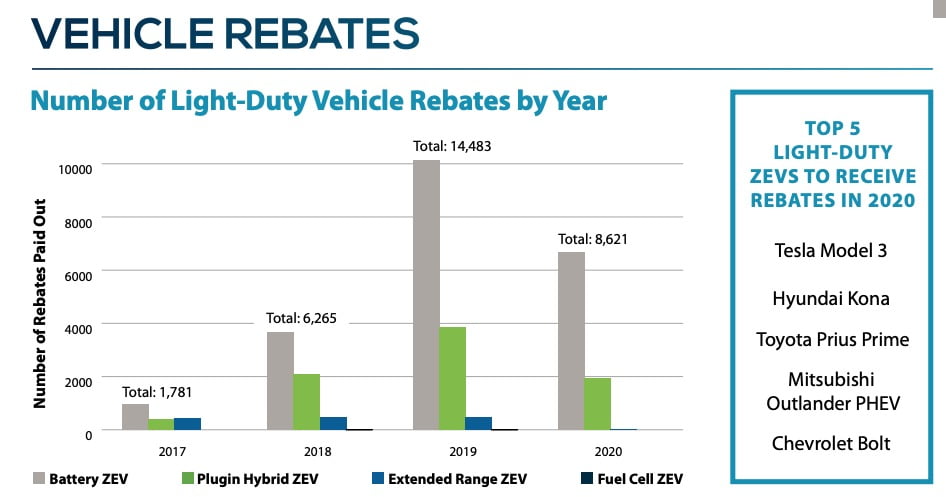
Canadian Province Leads Zero-Emission Vehicle Uptake in North America in 2020, Report Says

British Columbia, Canada, is one of many regions looking to make increase its electric vehicle (EV) customer base and infrastructure, and its new emissions report details how it did in 2020.
According to British Columbia’s 2020 annual emissions report released this week, the province’s light-duty zero-emission vehicles (ZEVs) made up 9.4% of all light-duty vehicle sales in 2020, totalling 54,469 new ZEV registrations throughout the year.
In addition, B.C. saw a new total of 2,127 Public Level 2 charging stations in 2020, increased from just 1,768 in 2019.
The report details a number of important emissions-related programs the region has enacted to support mainstream adoption of EVs, including a breakdown of the $31 million (CAD) funding from StrongerBC, the provincial government’s economic recovery plan following the 2020 COVID-19 pandemic.
In the report, B.C. Minister of Energy, Mines and Low Carbon Innovation Bruce Ralston said, “To help British Columbians make the switch to clean transportation, we added more in rebates in 2020 for charging infrastructure so people can charge their EVs at home or at work. We continued to add public EV charging and hydrogen fueling stations to our ever-expanding network across the province, and B.C. is now home to one of the largest EV charging networks and to the first cluster of hydrogen-fuelling stations in Canada.”
B.C. offers an EV rebate of $8,000 CAD ($6,382 USD) and Tesla’s Model 3 was in the top 5 of light-duty ZEVs to receive rebates in 2020. Joining the Model 3 was the Hyundai Kona, Toyota Prius Prime, Mitsubishi Outlander PHEV and Chevy Bolt.

The uptick in ZEVs supports a larger B.C. goal for all vehicles within the province to become fully electric by 2040. The provincial government has continually announced electric vehicle rebate programs as recently as last year, including investments into expanding the B.C. charging network.

